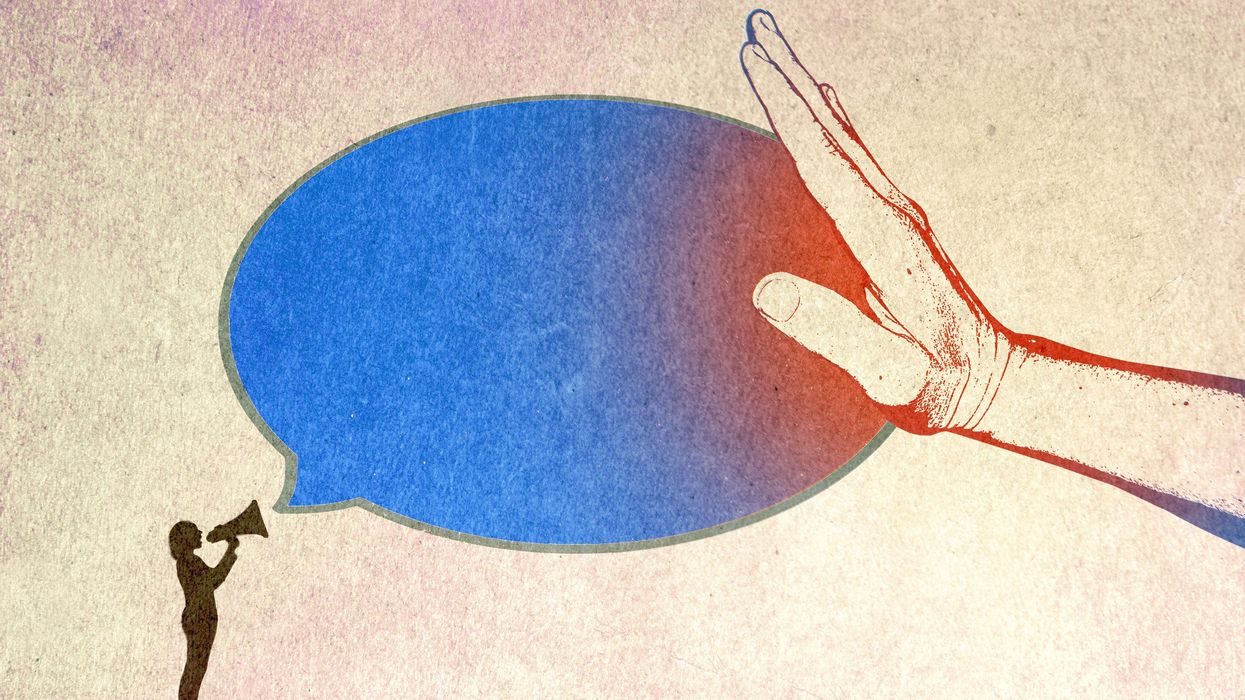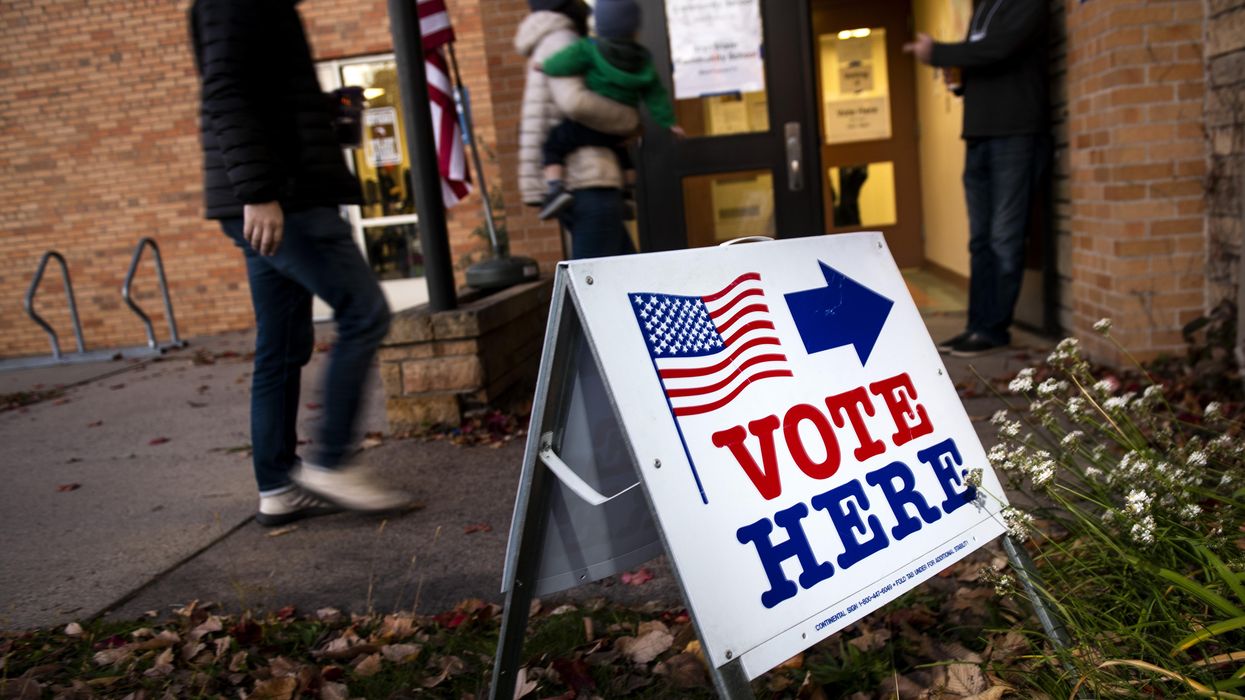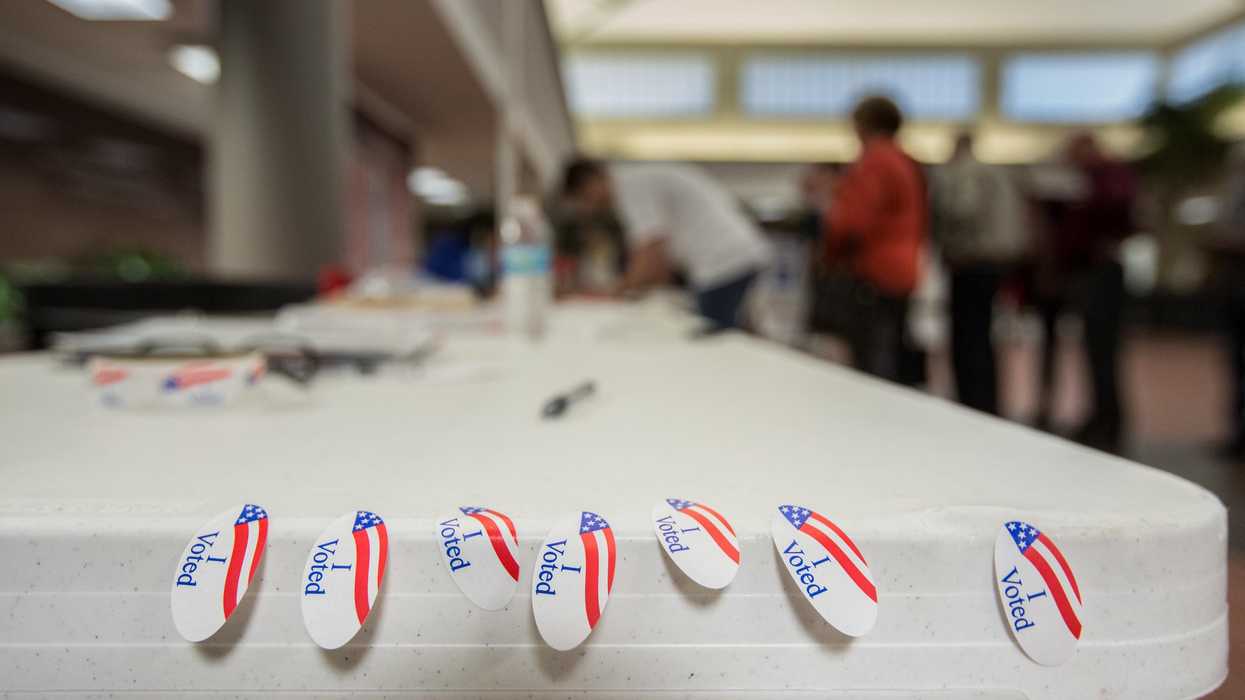More than fifty years ago, comedian George Carlin delivered a monologue entitled “Seven Words You Can Never Say on Television.” It was a tribute to the legendary Lenny Bruce, whose “nine dirty words” performance led to his arrest and his banning from many places.
His seven words were “p—, f—, c—, c———, m———–, and t—.”
Like Bruce, Carlin’s language was thrilling to counterculture aficionados but off-putting to millions of Americans who found it offensive. The Supreme Court sided with the latter group, finding what Carlin said as “’vulgar,’ ‘offensive,’ and ‘shocking.’"
Last week, the issue of language made a return, this time in the world of politics, not entertainment. On August 22, The Third Way, which describes itself as “a national think tank and advocacy organization that champions moderate policy and political ideas,” put out a memo warning Democrats and their allies not to use a list of forty-four progressive buzz words.
They highlighted many more words than those on Bruce’s or Carlin’s list. While some may engage in George Carlin-style mocking of the Third Way’s list or call its effort the policing of language, I call it good advice.
While the problems of the Democratic Party go well beyond its embrace of progressive buzz words, it cannot recover its standing with the American people unless it changes the way it talks to them.
Let me say a word about those problems.
Bad news for Democrats is coming in waves. It is coming at a time when the future of democracy in this country requires that they show toughness, inventiveness, and an ability to mobilize the American people.
The bad news for Democrats is thus also bad news for democracy.
Among the wave of that bad news, a few things stand out. Across the country, Democratic Party registration is declining. In addition, the party has less room for maneuver in the ongoing gerrymandering battles than the Republican Party does. Moreover, while the cast of leading Democratic political figures may be able to galvanize the base, they are not all that popular among all voters.
Indeed, the popularity of the party itself is at a historic low.
As Politico reports, a national survey done in July “found Democrats’ popularity at its lowest point in three decades…with 63 percent of voters holding an unfavorable view of the party.” On the other hand, “Only 33 percent of voters hold a favorable view of Democrats, with a meager 8 percent holding a ‘very favorable’ opinion, for a net negative favorability of 30 percentage points.”
That is 19% below the GOP’s favorability rating.
Favorability ratings are snapshots of public sentiment at one point in time, but scholars have found that “favorability ratings as of Election Day predict the party's margin in the U.S. House popular vote to within 2 percentage points.”
It turns out that disaffection with Democrats grows as you move further left on the political spectrum. “About 20% of the Democrats who call themselves ‘very liberal’ have an unfavorable view of the party. That compares to just 8% of ‘very conservative’ Republicans who view the GOP negatively.”
This fact illustrates part of the Democrats' dilemma. Their most liberal voters don’t like what the party is doing. In contrast, the most ideologically extreme Republicans are much more satisfied with their party.
But that too is also a dilemma for democracy. It encourages GOP leaders to keep doing what they are doing, even if it erodes the fabric of the American political system.
One of the things the GOP is doing is trying to ensure that Democrats don’t have a fair shot at taking back the House of Representatives next year. They know that, as unpopular as the Democratic Party is now, the president and his policies are even more unpopular.
That is why gerrymandering is so attractive to the Republicans. This year, they have more places where they can gain an advantage through gerrymandering than the Democrats do.
Republicans have already shown themselves adept at using redistricting to their advantage. According to the Brennan Center, in 2024, Republicans gained “an advantage of around 16 House seats in the…race to control Congress,” compared to what the result would have been using fair maps.
Another problem facing the Democrats is that many of their leading politicians suffer from a “the more they know you, the less they like you” problem. Take Minnesota Governor and former vice-presidential candidate Tim Walz. 84% of voters know who he is, but only 40% say they like him.
Pete Buttigieg’s numbers are 78% and 37%. And California Governor Gavin Newsom is known by 75% of the voters, but only 32% say they like him.
In Congresswoman Alexandra Ocasio-Cortez’s case, 76% know her, but only 36% have a favorable view of her.
And if that wasn’t enough, on August 20, The New York Times broke the news that in the “30 states that track voter registration by political party, Democrats lost ground to Republicans in every single one between the 2020 and 2024 elections—and often by a lot. That four-year swing toward the Republicans adds up to 4.5 million voters, a deep political hole that could take years for Democrats to climb out from.”
The Third Way thinks that the “stampede away from the Democratic Party” is in large part a result of the language it uses and the rhetoric that has come to dominate in Democratic circles. As its memo explains, “Democrats and their allies use an awful lot of words and phrases no ordinary person would ever dream of saying. The intent of this language is to include, broaden, empathize, accept, and embrace.”
Examples include “birthing person,” “the unhoused,” “cisgender,” and “justice-involved” person.
“The effect of this language,” The Third Way argues, “is to sound like the extreme, divisive, elitist, and obfuscatory enforcers of wokeness. To please the few, we have alienated the many—especially on culture issues, where our language sounds superior, haughty, and arrogant.”
So-called “plain, authentic language that voters understand often rebounds badly among many activists and advocacy organizations. These activists and advocates may take on noble causes, but in doing so, they often demand compliance with their preferred messages; that is how ‘birthing person’ became a stand-in for mother or mom.”
Recall what I said about the dissatisfaction with the Democratic Party among its far-left voters. If the party heeds the Third Way’s advice and changes its rhetoric, it runs the risk of alienating even more of them.
If it does not, it will give even more grist for Fox News and the world of right-wing podcasters for whom making fun of these words fills their programming. As the Third Way puts it, “The eggshell dance of political correctness…leaves the people we aim to reach cold or fearful of admonishment.”
The result, as one of the people who conducted the survey discussed in Politico noted, is that “the Democratic brand is so bad that they don’t have the credibility to be a critic of Trump or the Republican Party.”
That is very bad news for American democracy since so many of the president’s policies reflect his view that America’s future rests in his hands and his hands alone. If democracy is to survive, the Democrats must be able to be credible critics.
As the Third Way rightly observes, to preserve democracy and resist the policies that erode it, “the most important thing we can do…is to build a bigger army…. Communicating in authentic ways that welcome rather than drive voters away would be a good start.”
Austin Sarat is the William Nelson Cromwell professor of jurisprudence and political science at Amherst College.




















